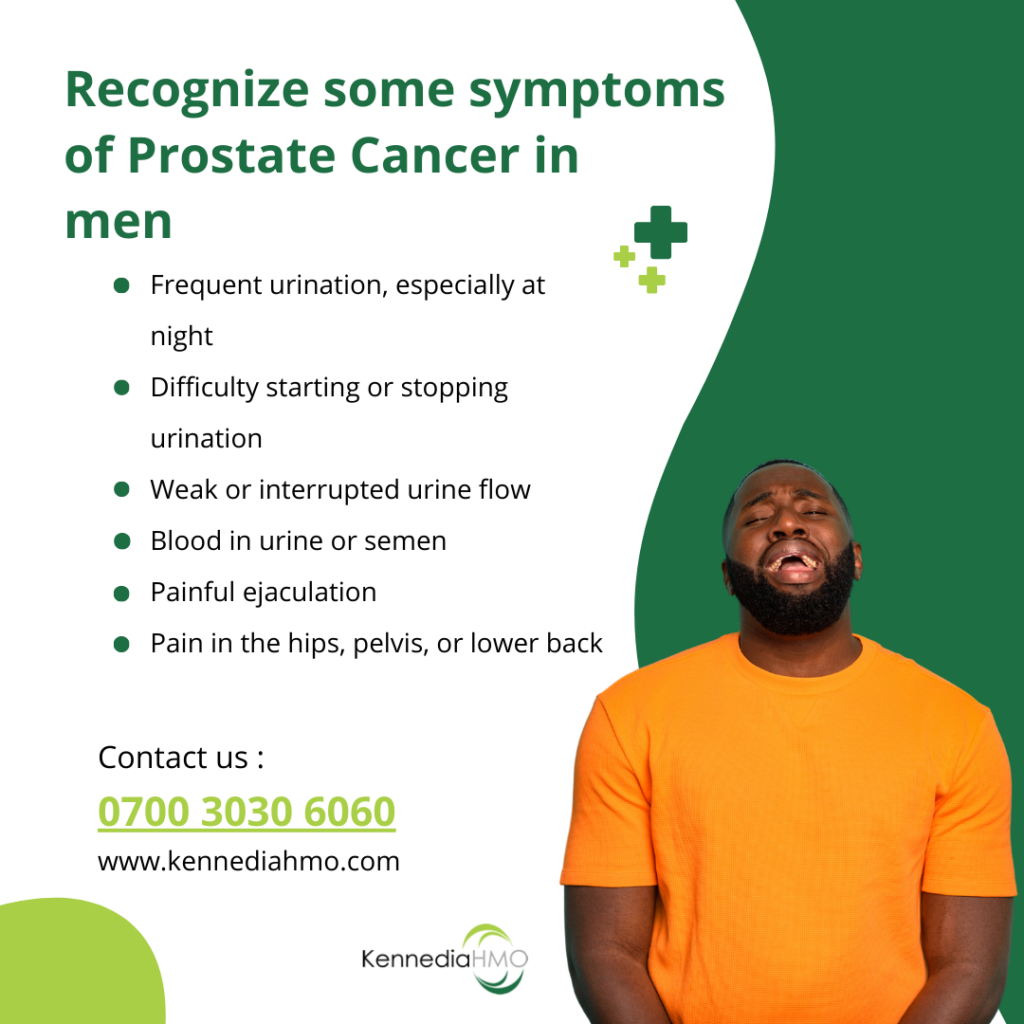
Prostate Cancer in Nigeria: Causes, Symptoms, and What You Need to Know
Understanding Prostate Cancer
Prostate cancer is one of the most common cancers affecting men globally, and Nigeria is no exception. It develops in the prostate gland, a small walnut-shaped organ in men that produces seminal fluid. While prostate cancer is often slow-growing, it can become aggressive and spread if left untreated.
In Nigeria, the burden of prostate cancer is increasing at an alarming rate, often due to late diagnosis, lack of awareness, and limited access to healthcare. This article explores the causes, symptoms, risk factors, treatment options, and the current state of prostate cancer in Nigeria.
What is Prostate Cancer?
Prostate cancer occurs when cells in the prostate gland start growing uncontrollably. The exact cause of these abnormal cell growths is still unknown, but several risk factors have been linked to the disease.
Key Risk Factors
- Age: The risk increases significantly after age 50.
- Family History: Men with a father or brother who had prostate cancer are at higher risk.
- Ethnicity: Black men, including Nigerians, are more likely to develop and die from prostate cancer.
- Diet: High-fat diets and low consumption of fruits and vegetables can increase risk.
- Lifestyle Factors: Obesity, sedentary lifestyle, and smoking have been associated with higher prostate cancer risks.
Common Symptoms of Prostate Cancer
In the early stages, prostate cancer may not present any symptoms. However, as it progresses, symptoms may include:
- Frequent urination, especially at night
- Difficulty starting or stopping urination
- Weak or interrupted urine flow
- Blood in urine or semen
- Painful ejaculation
- Pain in the hips, pelvis, or lower back
Early detection is crucial, which is why regular screening is recommended for men over 40, especially those with risk factors.

Diagnostic Methods
Prostate cancer is diagnosed through several tests, including:
- Digital Rectal Exam (DRE)
- Prostate-Specific Antigen (PSA) Blood Test
- Prostate Biopsy
- MRI or Ultrasound Imaging
A combination of these tests helps determine the stage and aggressiveness of the cancer.
Treatment Options
Treatment depends on the stage and grade of the cancer, as well as the patient’s age and overall health. Options include:
- Active Surveillance – For low-risk cases.
- Surgery (Prostatectomy) – Removal of the prostate gland.
- Radiation Therapy – External or internal radiation to kill cancer cells.
- Hormone Therapy – Slows cancer growth by reducing testosterone levels.
- Chemotherapy – For aggressive or late-stage cancer.
Prostate Cancer in Nigeria: Alarming Statistics
Prostate cancer is the most commonly diagnosed cancer among Nigerian men and the leading cause of cancer-related deaths in this group.
Key Stats:
- According to the Globocan 2020 report, over 15,000 Nigerian men were diagnosed with prostate cancer, and nearly 8,000 deaths were recorded.
- The mortality-to-incidence ratio is among the highest globally, indicating late diagnosis and inadequate treatment.
- Studies from hospitals across Nigeria show that many men present at advanced stages, reducing the chance of successful treatment.
Challenges in Nigeria
Several factors contribute to the high burden of prostate cancer in Nigeria:
- Lack of Awareness: Many men are unaware of the importance of screening and early detection.
- Cultural Beliefs: Stigma and misinformation often prevent men from seeking timely help.
- Poor Access to Healthcare: Inadequate screening facilities and a shortage of oncologists worsen outcomes.
- Financial Barriers: The cost of diagnosis and treatment is often out of reach for many.
Raising Awareness and Prevention
To reduce the burden of prostate cancer in Nigeria, it is essential to:
- Promote nationwide screening campaigns, especially targeting men over 40.
- Encourage healthy lifestyles with balanced diets, exercise, and quitting smoking.
- Partner with local communities, media, and religious organizations to dispel myths and educate men.
- Support government policies for universal health coverage and access to cancer care.
Final Thoughts
Prostate cancer is a major public health issue in Nigeria, but with increased awareness, early detection, and improved access to treatment, outcomes can significantly improve. If you’re a man over 40 or have a family history of prostate cancer, talk to your doctor about regular screenings. Early action saves lives.
Are you or a loved one at risk for prostate cancer? Don’t wait. Schedule a screening today and share this article to raise awareness—because knowledge is power.




